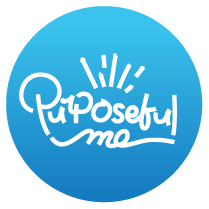The Silent Force
Unconscious bias is a deeply ingrained part of human psychology and it is the silent force that shapes our perception of others. It is the automatic judgments and assumptions we make about others based on ingrained stereotypes or personal experiences.
These biases are below the surface, often without our awareness, and can shape the way we view, interact with, and treat others. In society, unconscious bias can lead to prejudice, discrimination, and even hatred toward people we have never met or communities we know little about. When left unchecked, these biases contribute to a divisive society, where entire ethnic groups or cultures are painted with a broad brush of negativity.

One of the most dangerous consequences of unconscious bias is how it fuels unwarranted animosity towards individuals based on their race, beliefs, ethnicity, or nationality. As Martin Luther King Jr. once said, “Nothing in the world is more dangerous than sincere ignorance and conscientious stupidity.”
Often, our biases are rooted in ignorance—being uninformed about the true nature of a person or a group. This ignorance creates a fertile ground for prejudice to grow, turning a simple lack of understanding into hatred or fear. When we hold prejudices about people we’ve never met, we aren’t responding to the individual but rather to a stereotype that society has constructed.
Unconscious bias manifests in simple, everyday scenarios. It might be the hiring manager who instinctively views a job candidate of a certain ethnicity or age group as less competent, or the teacher who holds different academic expectations for students based on their race or being uncomfortable around people who dress differently to us.
These subtle actions, driven by unconscious bias, often go unnoticed but accumulate over time to create structural inequalities in society. When such biases are unchecked, they reinforce the social barriers that divide us.

Unfortunately, unconscious bias can also be seen in the extreme—fuelling outright hatred. I’m appalled when I see people harbour deep animosity toward ethnicities, races, or nationalities they have never personally interacted with. This kind of irrational hatred often stems from being bombarded with negative stereotypes through media, hearsay, or cultural narratives.
As Mahatma Gandhi wisely pointed out, “An eye for an eye will only make the whole world blind.” Harbouring hate for people based purely on assumptions or societal narratives, only perpetuates a cycle of division and ignorance.
Breaking free from the grip of unconscious bias requires active, intentional choices. The first step is awareness. By recognising that everyone has biases, we open the door to addressing them.
Each of us must challenge our own assumptions. We must ask ourselves: Why do we feel the way we do about certain groups or individuals? What evidence supports or disproves our assumptions? Seeking out new experiences, such as engaging with diverse cultures, listening to personal stories, or educating ourselves on different perspectives, can break down stereotypes and reduce bias.
We must stop seeing other people as inherently “less” or “better” than us. Whether it’s based on race, gender, or socio-economic background, the idea of superiority or inferiority is a myth rooted in bias. As Maya Angelou once said, “We are more alike, my friends, than we are unalike.”
By focusing on our shared humanity rather than our differences, we can begin to see others as equals. This shift in perspective is essential for building a more just and inclusive society.

It’s also crucial that we recognise the difference between overt and covert bias. Overt bias is easy to see — it’s the blatant racism or discrimination we see in hate speech or explicit actions.
Covert bias, however, is more insidious and harder to detect. It’s the subtle ways in which we may treat others differently or hold negative views without outwardly expressing them. Even seemingly “harmless” biases, such as assuming someone is good at math because of their ethnicity, contribute to the broader issue of stereotyping. It’s important to hold ourselves accountable for both overt and covert biases, ensuring that we don’t perpetuate discrimination, even unintentionally.
Unconscious bias is a powerful, often hidden force that shapes how we view others, but we have the power to change this. By making conscious choices to challenge our assumptions, engage with others authentically, and see people as equals rather than as stereotypes, we can move toward a more inclusive and fair society. We must be more intentional in our thoughts, words, and actions, working to break down the barriers that divide us and embrace the common humanity that unites us.
As a society, we must commit to seeing people not as “less” or “better” than us, but as fellow ‘divinely created’ human beings deserving of respect, dignity, and understanding. It’s a choice we must actively make every day: to confront our biases, to listen with an open mind, and to treat others with kindness and fairness to build a society rooted in love, empathy, and mutual respect.
Thanks for reading and sharing my post.
Sorry, the comment form is closed at this time.


Mustapha
Thank for your encouragement and purpose, more wisdom